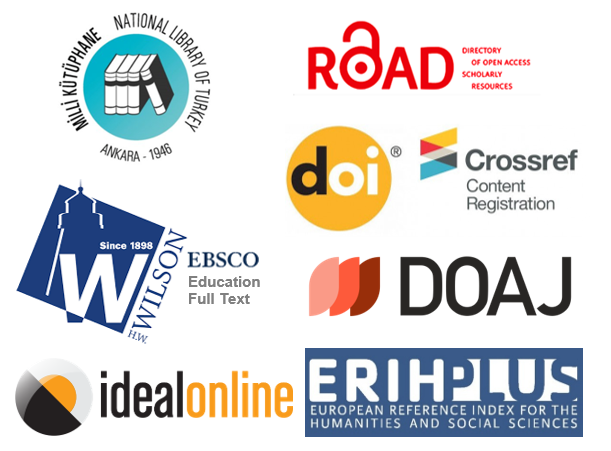Artificial Intelligence (AI) Usage Policy
Artificial Intelligence (AI) Usage Policy
The International Journal of Current Educational Studies (IJCES) is dedicated to upholding the principles of academic integrity, transparency, and responsible innovation. As artificial intelligence (AI) technologies become more prevalent in academic environments, this policy provides clear guidance regarding the acceptable use of AI tools by authors, reviewers, and editors involved in the publication process.
1. For Authors
Acceptable Uses of AI Tools
Authors may make limited and transparent use of AI tools in the following areas:
-
Language Editing and Style Enhancement: AI-based tools (e.g., grammar checkers or writing assistants) may be used to improve the readability and linguistic clarity of the manuscript. Authors are responsible for reviewing and validating all edits.
-
Illustrative Content: AI-generated examples may be included for explanatory purposes, provided they are properly attributed and clearly indicated as machine-generated.
-
Data Processing Support: AI may assist in data organization or analysis (e.g., clustering, text mining), as long as the methodology section details the specific tools, settings, and rationale for their use.
Unacceptable Uses of AI Tools
Authors must not employ AI in the following ways:
-
Generating Core Content: AI tools must not be used to create substantial portions of the manuscript, such as the abstract, literature review, research design, results, or conclusion.
-
Fabricating Data or Sources: AI may not be used to generate, simulate, or manipulate data, nor to create fictional references or citations.
-
Creating Visuals or Figures: Visual materials produced entirely by AI are not accepted due to authenticity and ethical concerns.
Prohibition of Citing AI Tools
Generative AI tools (e.g., ChatGPT, Bard, etc.) must not be cited or listed as references under any circumstances, as these tools cannot take responsibility for their outputs and do not constitute verifiable scholarly sources.
Disclosure Requirement
All uses of AI tools must be explicitly acknowledged in the manuscript. A statement should be included in the Acknowledgments section (e.g., "We used [AI Tool Name] to assist with language editing and formatting. Final content was reviewed and verified by the authors.").
2. For Reviewers
Acceptable Uses
Reviewers may use AI tools for minor support tasks such as:
-
Refining the language and clarity of their review report.
-
Checking references or verifying basic factual information.
Unacceptable Uses
Reviewers are strictly prohibited from:
-
Delegating the assessment of intellectual or scientific merit to AI tools.
-
Sharing manuscript content with AI tools could compromise confidentiality.
-
Generating full review texts using AI.
Responsibilities
Reviewers should report any suspected misuse of AI tools by authors. Confidentiality must be maintained at all stages of the review process.
3. For Editors
Acceptable Uses
Editors may utilize AI tools to support:
-
Routine editorial management tasks, such as manuscript tracking or communications.
-
Drafting or refining internal documentation or correspondence, under human supervision.
Unacceptable Uses
Editors may not:
-
Use AI tools to assess the academic quality or originality of a manuscript.
-
Rely solely on AI to compose decision letters or other substantive editorial content.
Editorial Duties
Editors are responsible for:
-
Ensuring authors disclose AI usage transparently.
-
Preventing unethical AI use in the editorial and peer review process.
-
Educating reviewers on this policy and monitoring compliance.
Transparency of Editorial AI Use
The journal will publicly disclose any use of AI tools in its editorial workflows (e.g., for routine task management or communication). All such uses will remain under strict human oversight, ensuring that AI does not replace editorial judgment or compromise publication ethics.
4. Ethical Guidelines for All Contributors
AI tools can produce convincing yet inaccurate or misleading content. All contributors to IJCES must apply critical judgment and verify the accuracy of any AI-influenced content. Ethical considerations, including respect for privacy, avoidance of bias, and scientific accountability, must guide all AI usage.
5. Policy Violations and Consequences
Violations of this policy may lead to:
-
Rejection or retraction of submissions.
-
Disqualification of reviewers from future engagements.
-
Editorial review and appropriate action for any breaches by editors.
6. Commitment to Responsible AI Integration
IJCES supports the thoughtful and ethical integration of AI in academic publishing. By following this policy, all stakeholders contribute to maintaining the quality, transparency, and trustworthiness of the scholarly record.
For questions or clarifications regarding this policy, please get in touch with the editorial office at ijcesoffice@gmail.com.



